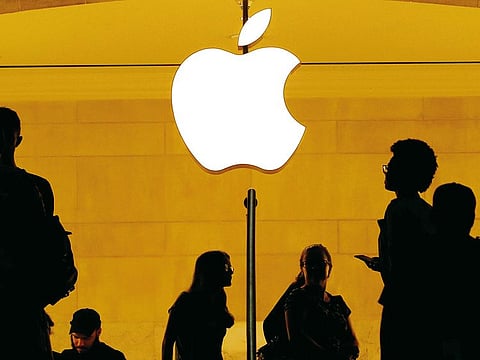Apple to unveil slew of new apps and software features at WWDC
Highlights include upgrades to core iPhone apps such as Maps, Reminders and Messages

Apple is planning to unleash a slew of new apps, features and development tools at its annual software conference next month. To improve its devices and strengthen its connection to customers, the consumer technology giant will continue to walk a fine line between wooing outside app makers while also competing against them.
The Worldwide Developers Conference, or WWDC, starts June 3. The company will reveal updates to the operating systems that run the iPhone, iPad, Mac, Apple Watch, and Apple TV. Highlights include upgrades to core iPhone apps such as Maps, Reminders and Messages; new apps for the Apple Watch that make it more independent from the iPhone, and enhancements to the health tracking capabilities of Apple devices, according to people familiar with the plans.
Since launching the iPhone in 2007, Apple has pursued an aggressive approach to refreshing its mobile operating systems each year. The fast pace is taxing on Apple engineers, but the results have been impressive. The company’s products are often unique and more capable than those of rivals because Apple’s home-grown software works so well with the hardware. The new updates also give users access to the latest services like Apple Music and the upcoming TV+ video-streaming subscription, which give Apple a recurring revenue stream.
It’s a delicate balance. Part of the allure of iPhones and iPads also comes from all the different apps made by independent developers. The company provides new tools for these partners, but it is increasingly building its own versions of popular apps, too. That helps differentiate its devices from rivals but sometimes upsets third-party developers. Spotify Technology SA and other app makers have complained to European antitrust regulators that Apple’s own software and services give it an unfair advantage on the App Store. US presidential candidate Elizabeth Warren has proposed splitting the App Store from the rest of the company, although few other policymakers have supported the idea.
“Developers, from first-time engineers to larger companies, can rest assured that everyone is playing by the same set of rules,” Apple said in a recent statement rebutting Spotify’s complaint. “That’s how it should be. We want more app businesses to thrive - including the ones that compete with some aspect of our business, because they drive us to be better.”
New features coming to the Apple Watch illustrate the balance the company must strike. Apple plans to add the App Store directly to the Watch so users can download apps on the go. This could open up huge new opportunities for outside developers, boosting app installations. But Apple has its own new Watch apps in the works, too. There will be new health applications, a Calculator and a Books app for listening to audio books from your wrist, the people familiar with the plans said.
So far, Apple has managed to make the strategy work. The App Store drove $46.6 billion in spending last year, almost double the amount spent on Google’s Android equivalent, according to Sensor Tower estimates. That’s wooed more than 20 million developers who have created over 2 million apps for Apple’s platform. At the same time, there are 1.4 billion active Apple devices in use, and 92 percent of iPhones and iPads run the latest operating system, or the version before that. The App Store and other digital services are on course to generate more than $50 billion in annual revenue soon.



